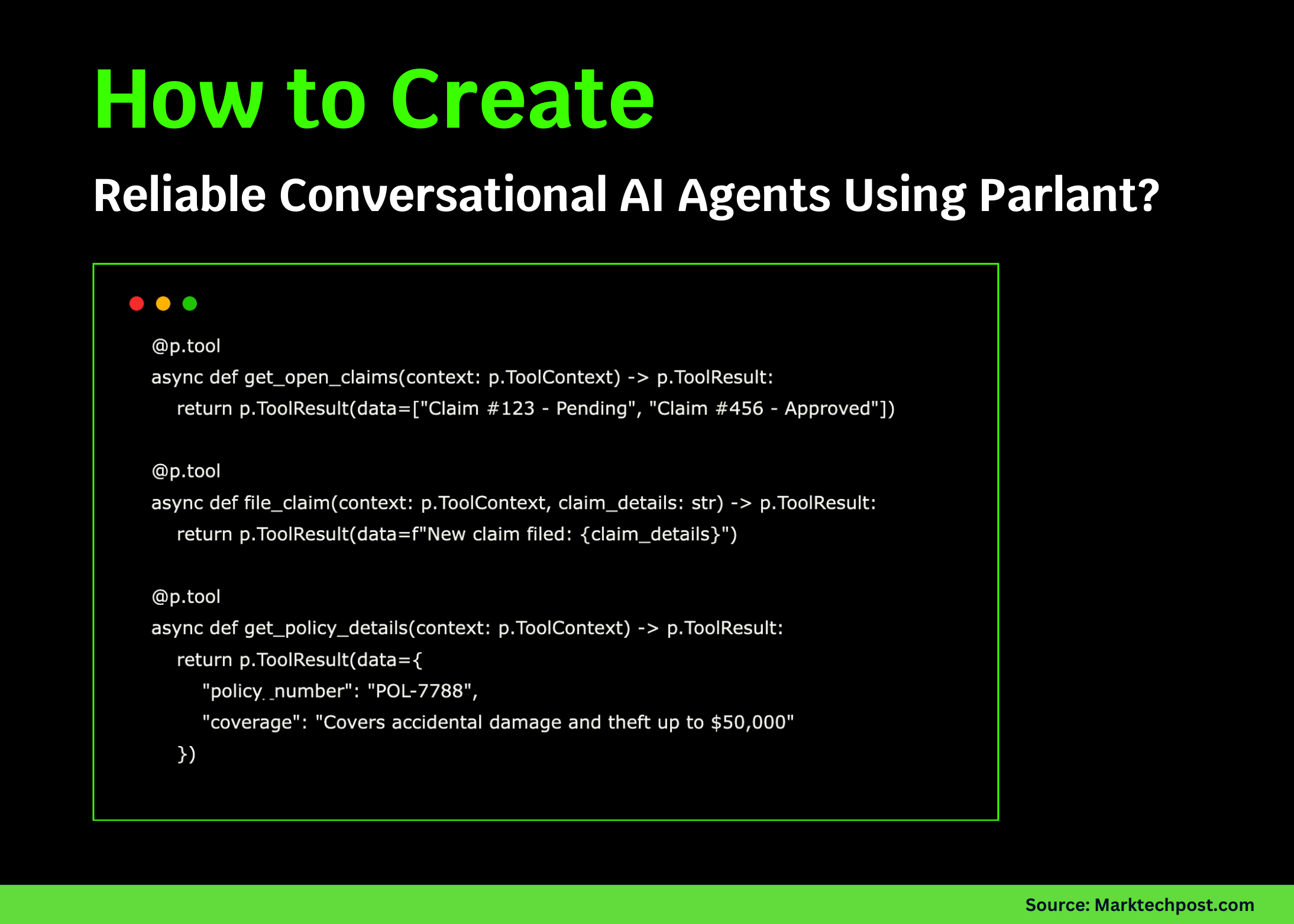
Building Reliable Conversational AI Agents with Parlant Framework
In the evolving landscape of artificial intelligence, ensuring the reliability of conversational AI agents is paramount. The Parlant framework is designed specifically to assist developers in creating production-ready AI agents that exhibit consistent and dependable behavior.
The Challenge of Reliability
One of the major hurdles in deploying large language model (LLM) agents lies in their performance. While these agents may excel during testing phases, they often falter when faced with real user interactions. Typical issues include:
- Ignoring meticulously crafted system prompts
- Generating inaccurate or irrelevant responses at crucial moments
- Struggling with edge cases
- Exhibiting inconsistent behavior across different conversations
Shifting the Focus
Parlant addresses these reliability challenges by moving away from a reliance on prompt engineering. Instead, it emphasizes principle-driven development. This approach facilitates the establishment of clear rules and tool integrations, allowing agents to access and process real-world data in a safe and predictable manner.
A Practical Example
In a recent tutorial, developers are guided through the process of creating an insurance agent using Parlant. This agent is capable of:
- Retrieving open claims
- Filing new claims
- Providing detailed policy information
This practical demonstration highlights how to effectively integrate domain-specific tools into a Parlant-powered AI system, ensuring consistent and reliable customer support.
Conclusion
As the demand for reliable conversational agents continues to grow, frameworks like Parlant are crucial for developers aiming to enhance user interactions and overall system performance. By focusing on robust development principles, Parlant not only improves reliability but also empowers developers to create more effective AI solutions.
Rocket Commentary
The article presents a critical examination of the reliability issues plaguing conversational AI agents, particularly large language models. The introduction of the Parlant framework is a welcome response to these challenges, as it underscores the industry's need for robust, production-ready solutions. However, while addressing reliability is crucial, it is equally important to ensure that these frameworks prioritize ethical considerations and accessibility in their design. If developers focus solely on performance metrics, they risk creating systems that may not serve the diverse needs of all users. The implications for businesses are significant; a reliable AI agent can transform customer interactions and operational efficiency, but it must also be grounded in principles that ensure fairness and inclusivity. As the landscape evolves, we must advocate for frameworks that not only enhance reliability but also foster ethical AI development, paving the way for truly transformative AI applications.
Read the Original Article
This summary was created from the original article. Click below to read the full story from the source.
Read Original Article